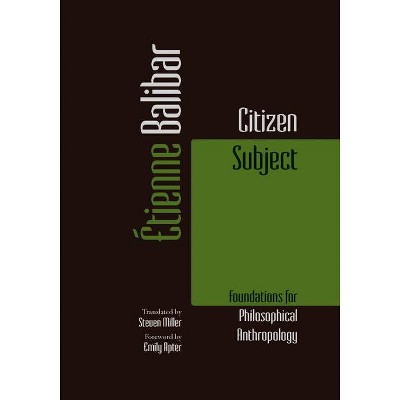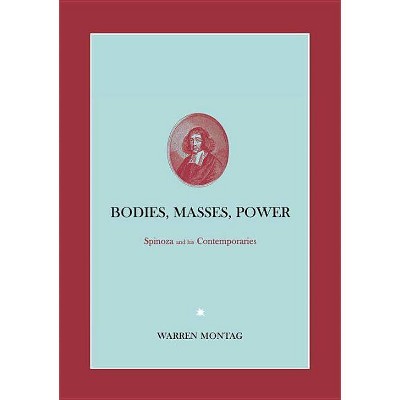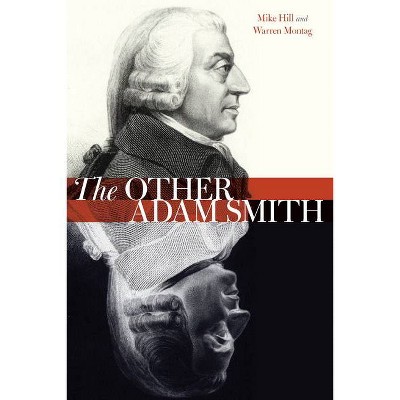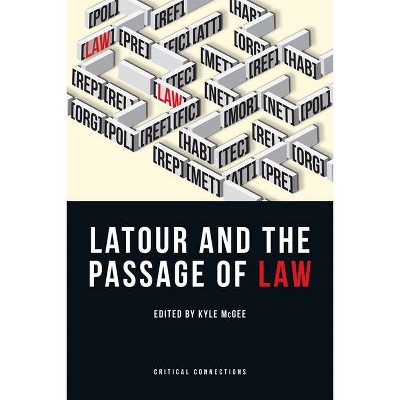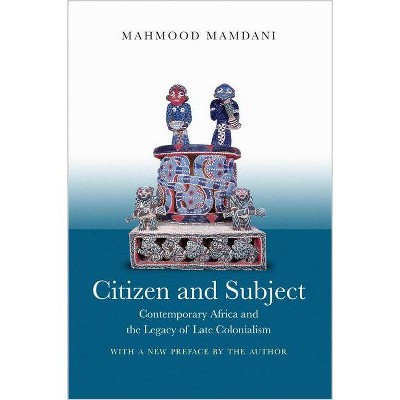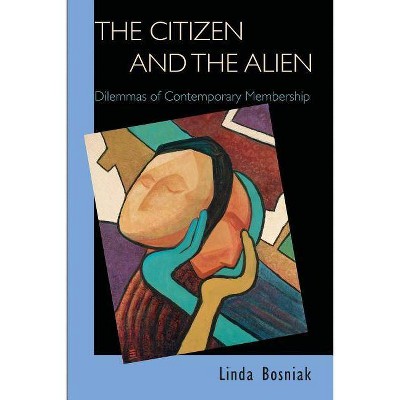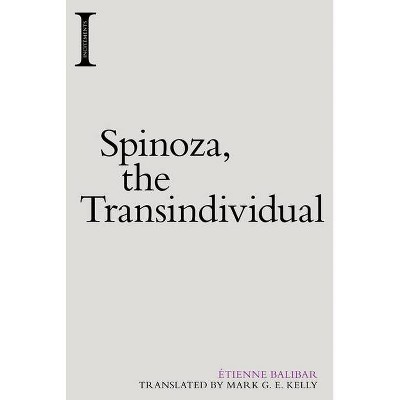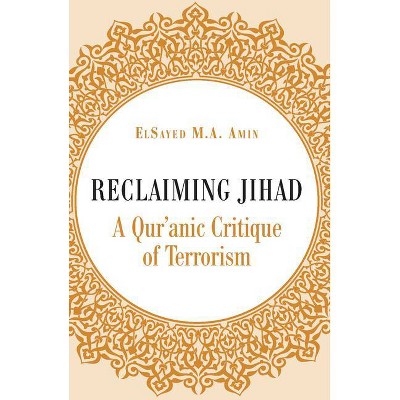Balibar and the Citizen Subject - (Critical Connections) by Warren Montag & Hanan Elsayed (Paperback)
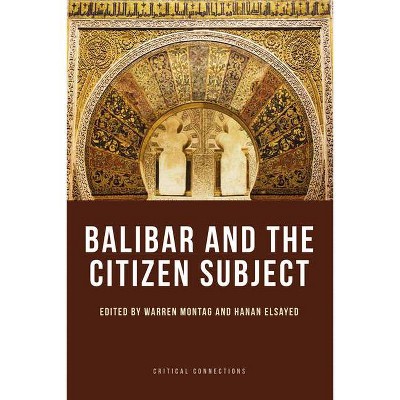
Similar Products
Products of same category from the store
AllProduct info
<p/><br></br><p><b> About the Book </b></p></br></br><p>The 12 essays provide an overview of Balibar's work after his collaboration with Althusser. They explain and expand his framework; in particular, by restoring Arabic and Islamic thought to the conversation on the citizen subject. The collection includes two previously untranslated essays by Balibar himself on Carl Schmitt and Thomas Hobbes.</p><p/><br></br><p><b> Book Synopsis </b></p></br></br><p>This collection explores Balibar's rethinking of the connections between subjection and subjectivity by tracing the genealogies of these concepts in their discursive history. The 12 essays provide an overview of Balibar's work after his collaboration with Althusser. They explain and expand his framework; in particular, by restoring Arabic and Islamic thought to the conversation on the citizen subject. The collection includes two previously untranslated essays by Balibar himself on Carl Schmitt and Thomas Hobbes. </p><p/><br></br><p><b> From the Back Cover </b></p></br></br>'There is hardly a field in contemporary critical thought that does not bear the traces of the powerful interventions of Étienne Balibar. This collection of essays is not merely a due homage to his work. It opens up new and challenging pathways in the wake of Balibar's philosophical and political reflection.' Sandro Mezzadra, University of Bologna Explores the core of Balibar's work since 1980 This collection explores Balibar's rethinking of the connections between subjection and subjectivity by tracing the genealogies of these concepts in their discursive history. The book provides an overview of Balibar's work after his collaboration with Althusser, explaining and broadening his framework, in particular by restoring Arabic and Islamic thought to the conversation on the citizen subject. Also included are two previously untranslated essays by Balibar himself on Carl Schmitt and Thomas Hobbes. The essays represent the breadth of Balibar's work and the range of its influence, both by the diversity of their geographical and cultural foci, and the historical span of the texts and themes they examine. Warren Montag is Professor of English at Occidental College and Hanan Elsayed is Assistant Professor of French and Arabic, also at Occidental College. Cover image: Mihrab of Mezquita Cathedral in Cordoba, Spain (c) Artur Bogacki/Shutterstock.com Cover design: [EUP logo] edinburghuniversitypress.com ISBN [PPC] 978-1-4744-0421-1 ISBN [cover] 978-1-4744-0423-5 Barcode<p/><br></br><p><b> About the Author </b></p></br></br><p>Warren Montag is Brown Family Professor in Literature, English at Occidental College. His publications include <i>The Other Adam Smith</i> with Mike Hill (Stanford UP, 2014) and <i>Althusser and his Contemporaries: Philosophy's Perpetual War</i> (Duke UP, 2013). <p>Hanan Elsayed is Associate Professor, Spanish and French Studies at Occidental College, where she teaches French and Arabic languages and literatures. She is the author of <i>L'Histoire sacrée de l'Islam dans la fiction maghrébine</i> (Karthala, 2016).<p>
Price History
Price Archive shows prices from various stores, lets you see history and find the cheapest. There is no actual sale on the website. For all support, inquiry and suggestion messages communication@pricearchive.us
